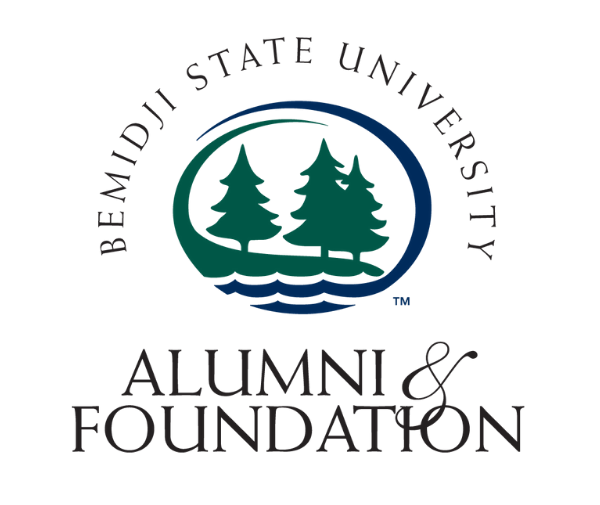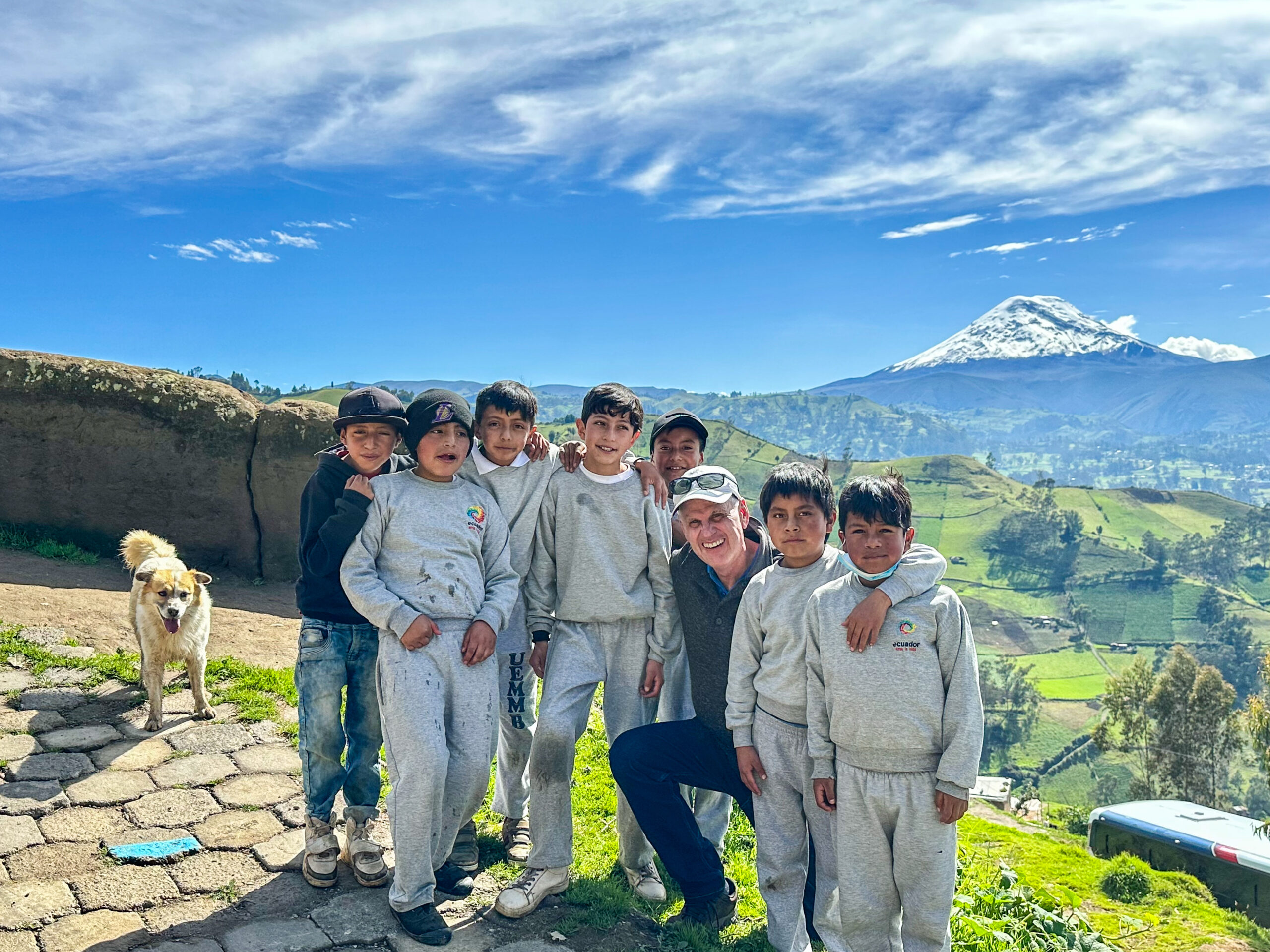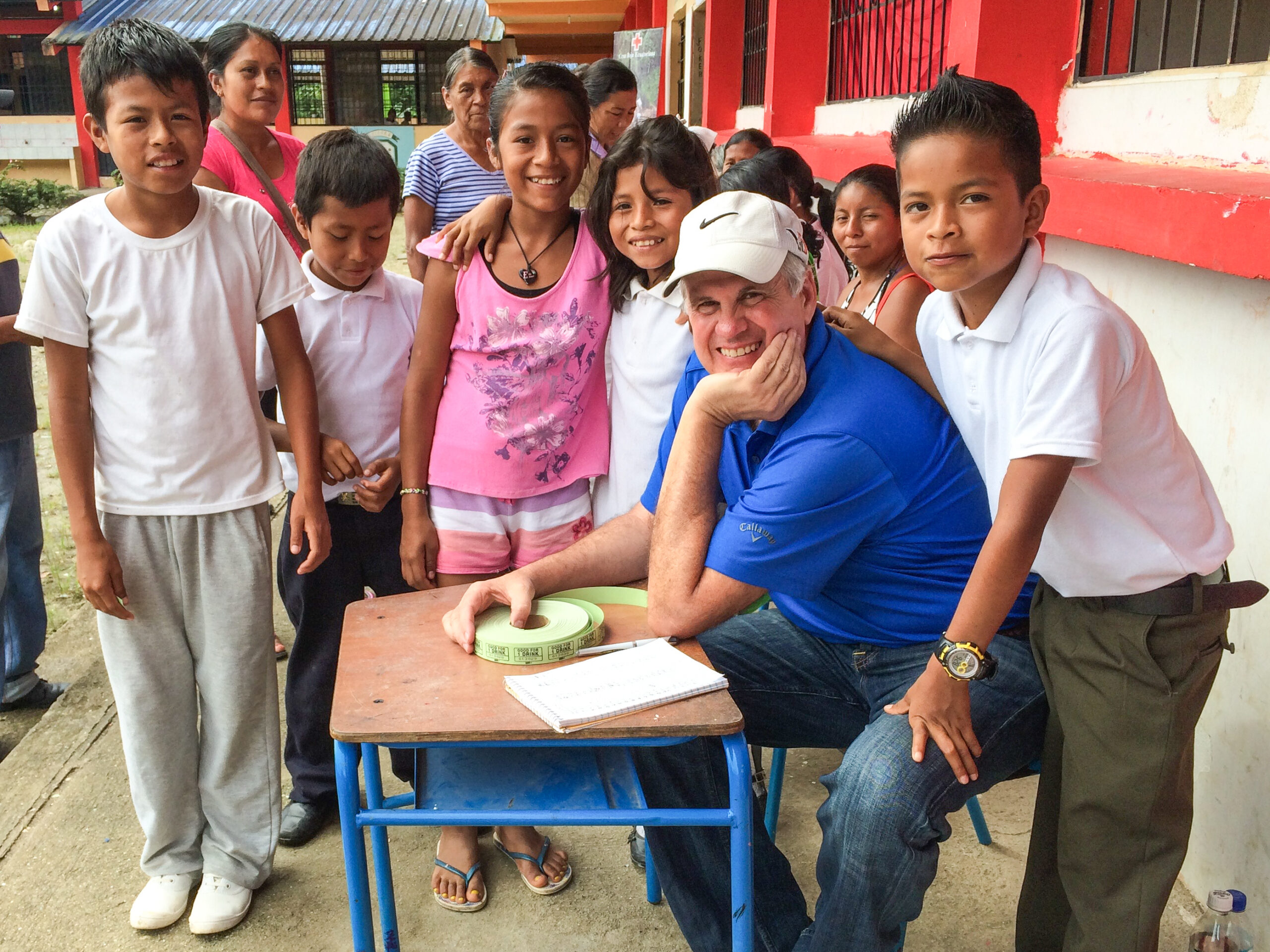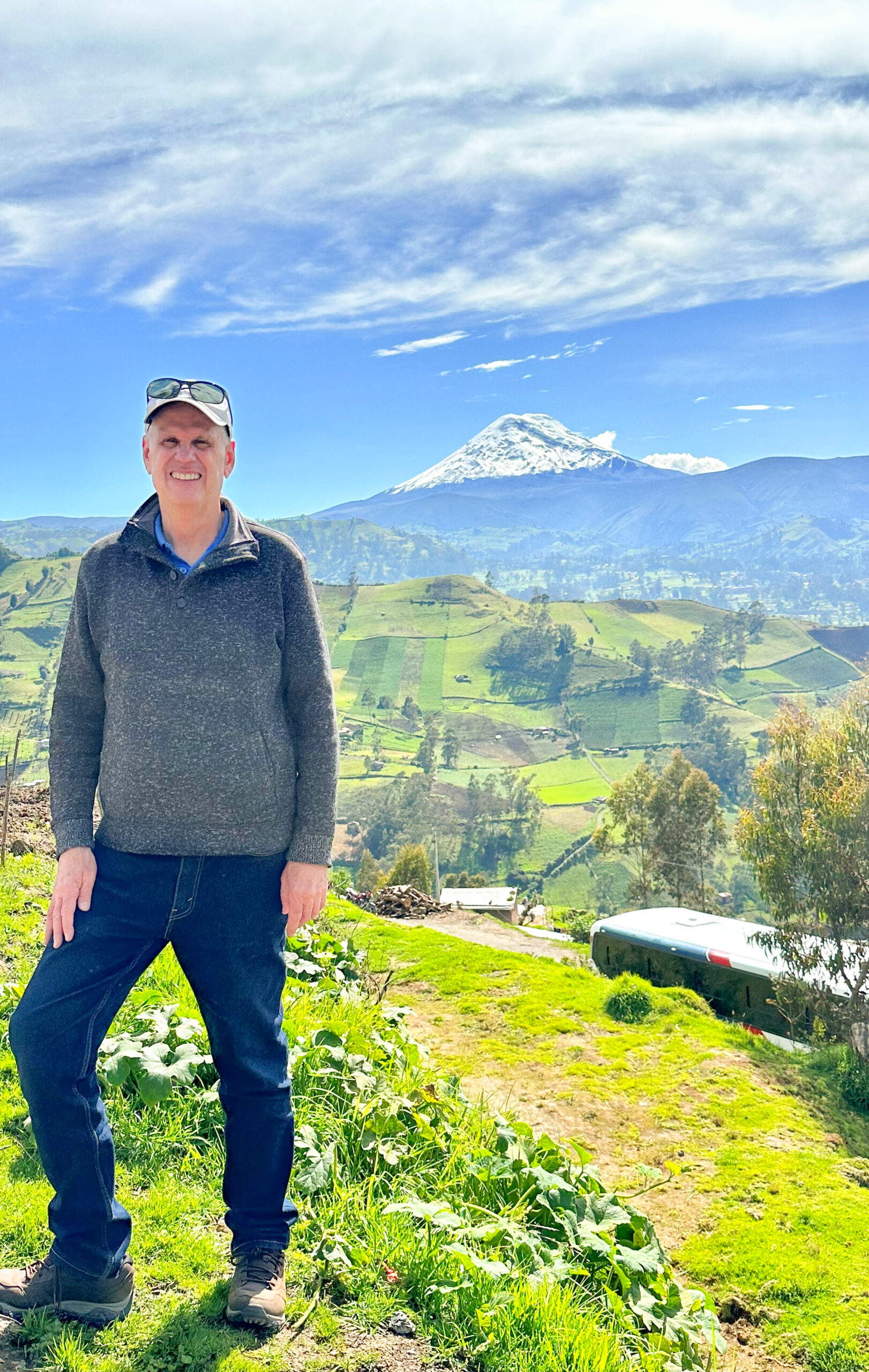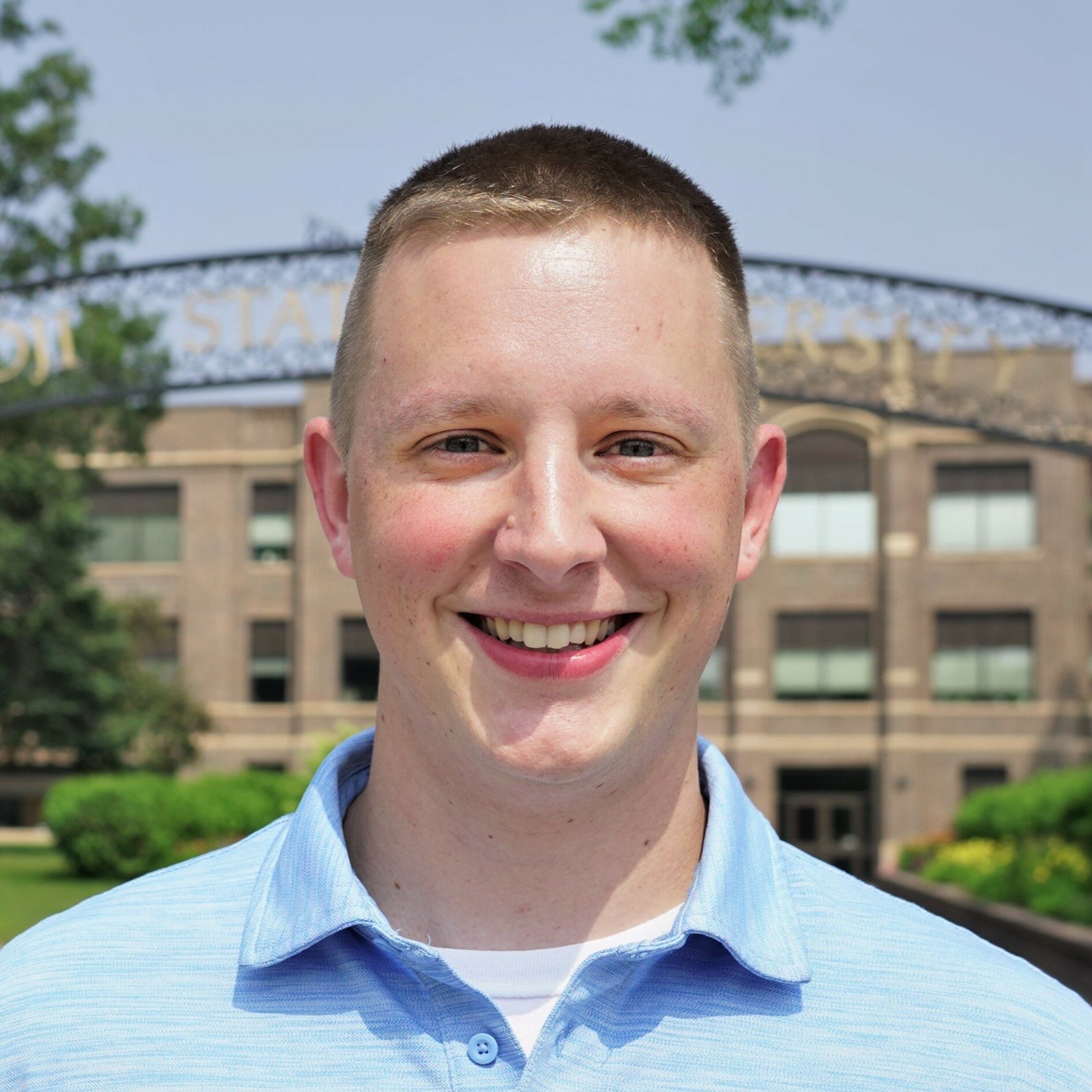
By Micah Friez
Published 6:00 a.m. on March 1, 2024
When Mark Backlin first visited Ecuador, the medical field was as foreign to him as the country. But he’s come to discover his role in both regions.
“When you’re in front of a patient, and you look in their eyes and you see the change you can make in a very basic way, it’s one of the most powerful feelings you could ever have,” Backlin said. “It’s just about that ability to make a difference.”
Backlin, a 1979 Bemidji State University graduate, has facilitated over 70 medical missions to over 220 Ecuadorian communities in the past 16 years. He and his teams have helped more than 80,000 patients with sometimes basic, yet often life-changing care.
“It really isn’t about the numbers, it’s just about those you can help with what you can,” he said. “Helping patients in general, no matter what the number is, I don’t have words for that. It’s the most humbling human experience that I think you can have.”
Backlin’s work is built upon a foundation set by his late wife, Judith Lombeida, a doctor whose love for her native Ecuador inspired her to take part in medical missions in her homeland. After Judith tragically died in a 2006 car accident, her legacy inspired Mark to continue that calling.
An industrial engineer by trade, Backlin soon began exploring how to lead medical missions himself. He’s faced plenty of obstacles and hardships along the way, but he’s always been adamant: He won’t take no for an answer.
“That’s been my philosophy about the whole thing,” he said. “Even though I didn’t know what I was doing, I said, ‘We’re going to figure it out.’ Fortunately, you find people along the path who get on your train to support you and help you make it work.”
During his first trip in 2007, Backlin’s team saw about 2,500 patients in five days. Since then, he’s had a wide range of experiences. He’s assisted the medical professional volunteers in delivering babies, implanting pacemakers and fixing cleft lips and palates.
The scope of work is vast, expanding over the years to include care in surgery, dentistry, optometry, psychology, psychiatry, cardiology and rheumatology. Even supplying walking canes or wheelchairs is an emotional experience, Backlin said.
He relies on the expertise of the professional caretakers, of course, but Backlin provides the avenue for at-risk and impoverished patients to connect with them. The volunteer work is now his full-time occupation.
“We’re very good at what we do,” Backlin said. “It’s not easy, don’t get me wrong. But you learn lessons over time and just get better at it. When you realize the impact of what you’re doing, it’s pretty powerful.”
Foundational faith
Backlin admits he wouldn’t be able to do this work if not for people who believed in him. While his can-do attitude has opened plenty of doors, opportunities provided to him have also been crucial to his life’s work.
Before his inaugural mission to Ecuador, friends in Minneapolis took Backlin on a trip to Guatemala so he could see how medical mission trips function. That invite inadvertently landed Backlin in the operating room and actively assisting in a hernia surgery — an overwhelming and eye-opening 45 minutes for him.
“I walked out of there like, ‘I cannot believe that happened,’” he said. “But that particular (episode) changed my mental thinking to, ‘Maybe I can do this.’ Not because I was in the surgery room but because somebody really felt that I could do it. Not the surgery itself, but I could make this work. That was the first time I turned around in my mind and believed it.”
Going even further back, an experience at BSU stirred up similar inspiration. While on campus as a student, Backlin pursued the piano program despite not taking many lessons in his youth. His technical skills were perhaps lower than average as a result, but he loved playing. So instead of shooing him away, his professors fostered that passion and found ways to work with the level he was at.
“The maturing process that goes on in a university, and certainly Bemidji State for me, creates the foundation for you to go out and explore things with less fear,” Backlin said. “I had teachers there who believed in me. When you’ve got that kind of support and mentality, you can move forward and do anything. And that came from the university.”
As the number of years, trips and changed lives continue to climb, Backlin knows that his leap of faith has been well worth the jump.
“I went into it blind, not knowing what I was doing. Looking back 16 years later, it’s been the best personal experience that I’ve ever had in my life,” he said. “You know you’ve made a difference. And not only have you touched the life of that patient, you’ve touched the lives of everyone around them. There’s nothing like it.”
